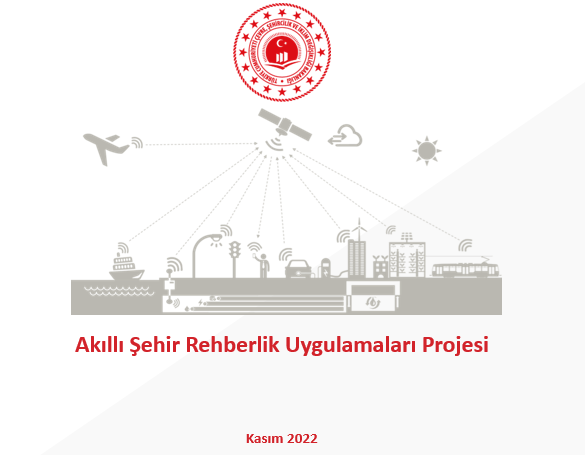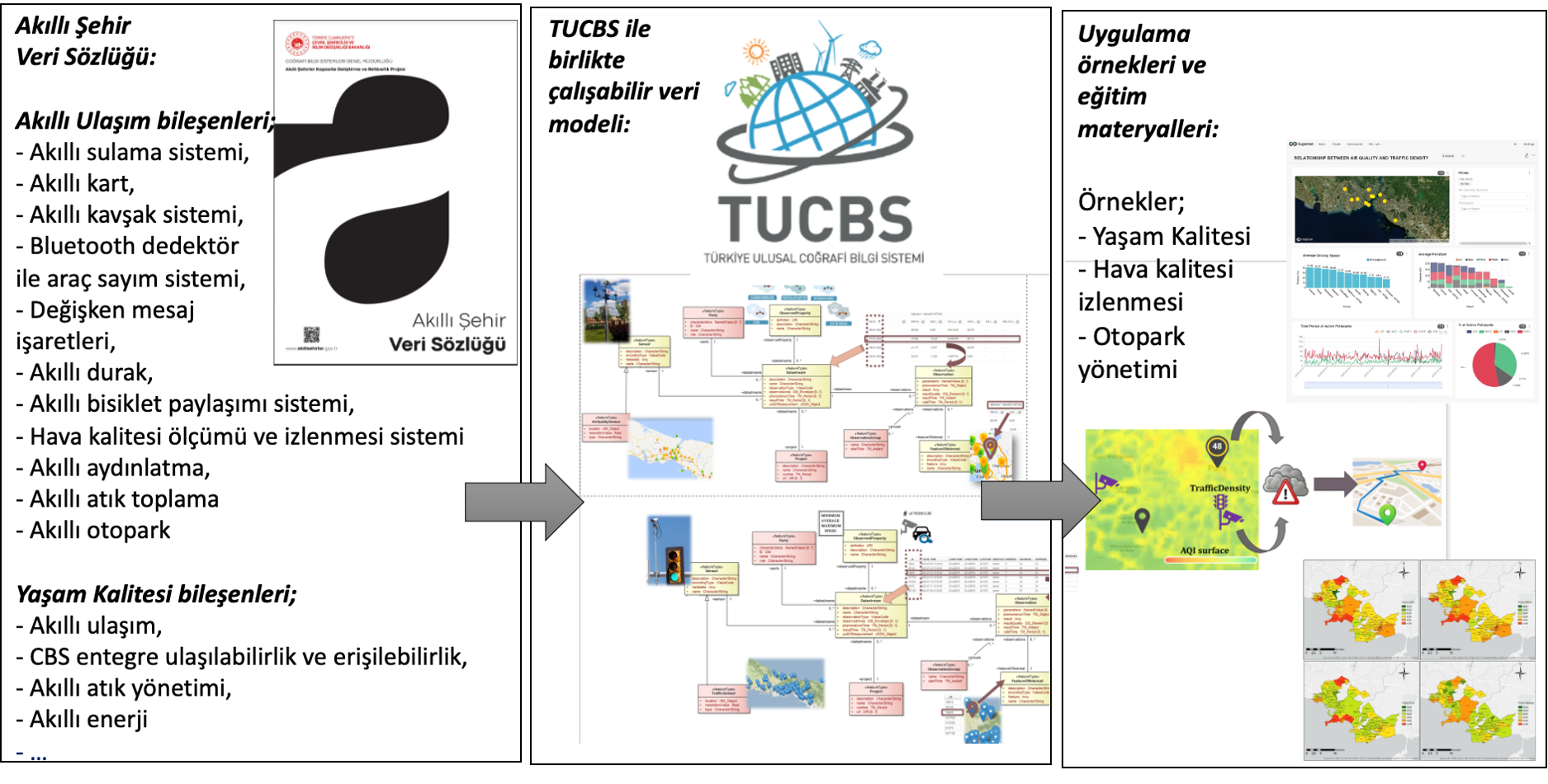SMART CITIES DATA DICTIONARY PROJECT
The "Smart City Data Dictionary" service is provided as an academic consultancy service by the
contractor Gebze Technical University Technology Transfer Office (TTO) within the scope of the
"Smart City Guidance Applications Project", which is being carried out with external support within
the body of TÜBİTAK Turkey Management Sciences Institute (TÜSSIDE).
The scope of this service procurement; It consists of three parts, which can be expressed as the creation of a
Smart Cities Data Dictionary, the design of a data model that can work together with the Turkish National
Geographic Information System (TUCBS) infrastructure based on the developed data dictionary, and the
preparation of application examples and training materials. While preparing the data dictionary, the Data
Dictionary Creation Methodology published by the Presidency's Digital Transformation Presidency will be taken
into account. While preparing the data model, TUCBS conceptual models and ISOTC211 standards and components
are examined, and TUCBS add-on data model is designed.
The two subject categories of service procurement in the Smart Cities Data Dictionary are Smart Transport
and Quality of Life. The determination of data sets for smart irrigation systems, smart cards (public
transportation cards), smart intersection systems, vehicle counting systems with bluetooth detectors,
variable message signs, smart stops, smart bike sharing systems, and air quality measurement and monitoring
systems falls under the umbrella of smart transportation. Moreover, data sets for smart parking, smart waste
collection, and smart lighting are being revised.
Smart waste management, smart energy, and smart transportation are all included in the Quality of Life category.
The development of a data dictionary and an add-on data model for quality of life in smart cities involves
choosing at least five of the most often used criterion categories.
Three application examples—Quality of Life, Air Quality Monitoring, and Parking Lot Management—were
selected using the current data themes and the to-be-developed smart city data model. For GIS-based
example applications, training materials such as presentations and videos are developed. In order to
support the 2020–2023 National Smart Cities Strategy and Action Plan and the TUBCS Infrastructure, a
Smart Cities Data Dictionary and Data Model will be created.

